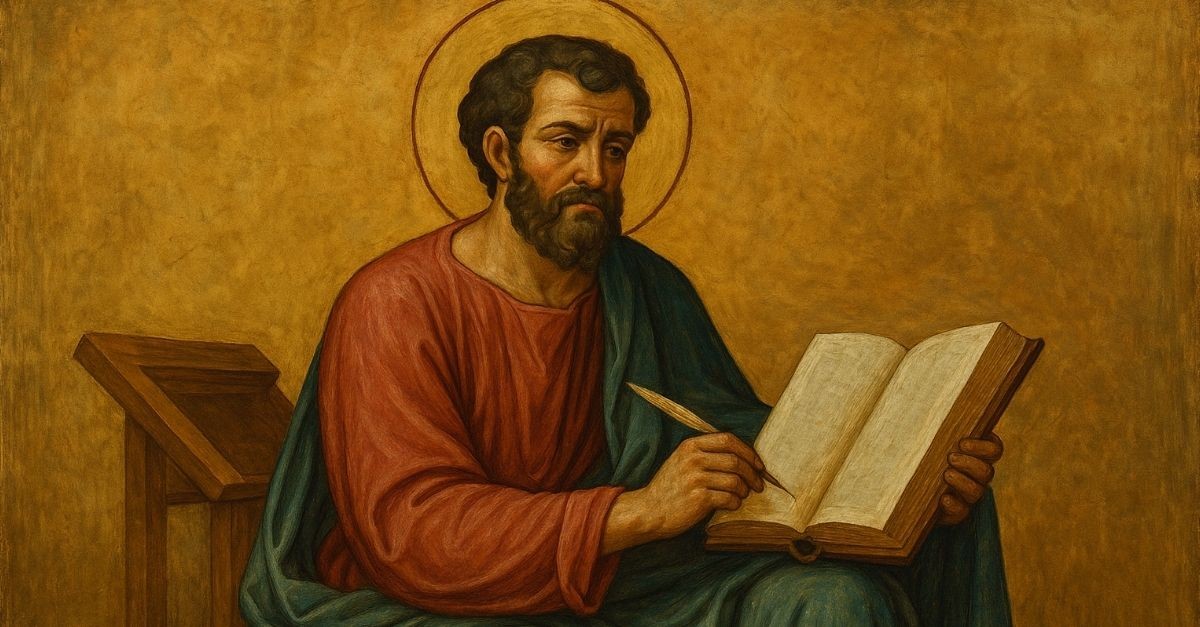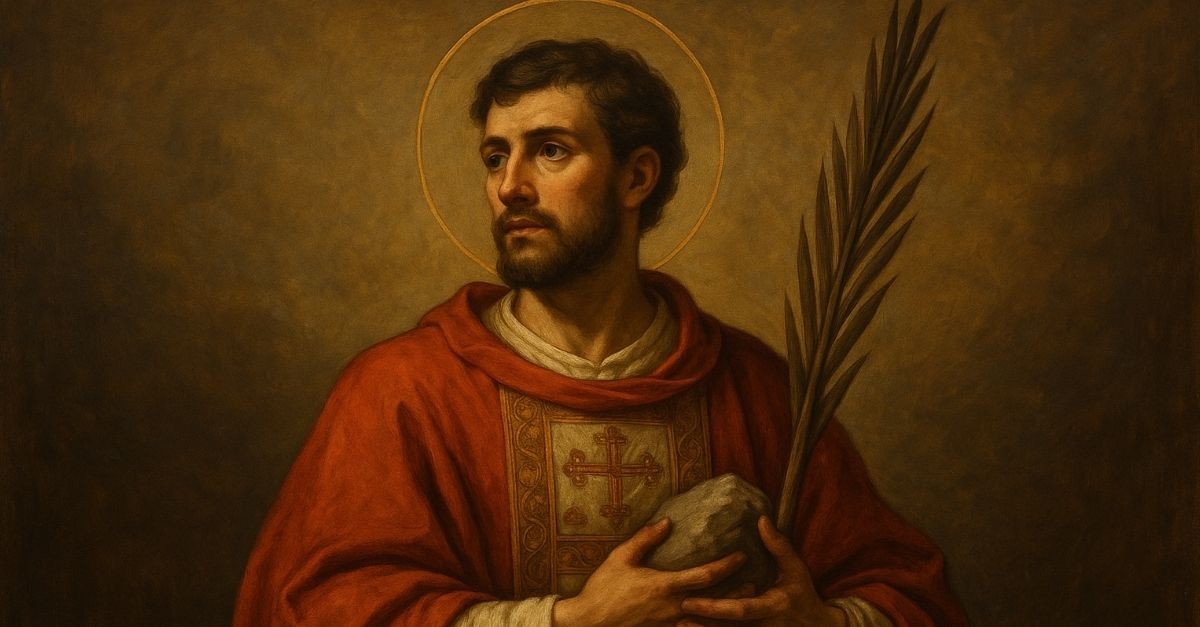
“In my former book, Theophilus, I wrote about all that Jesus began to do and to teach until the day he was taken up to heaven, after giving instructions through the Holy Spirit to the apostles he had chosen.” - Acts 1:1-2
The Book of Acts of the Apostles, or what we know today simply as the Book of Acts, sometimes seemingly falls between the cracks—being situated right after the gospels but right before the letters that seem to dominate our teaching and theology. Based on a very unscientific study of my own personal experience and feelings on the matter, it often feels like Acts is perhaps the least-read of all the books of the New Testament.
Perhaps somewhat surprisingly, Acts is the church's only Biblical history and development. After all, the Old Testament is fairly well filled with “historical” books – and even those that are not among the twelve books considered historical at their core, present us with a great deal of history, including Genesis and Exodus. Yet, like Genesis and Exodus, Acts includes some incredibly vital historical events.
Picking up where the gospels end, Acts records the fulfillment of Jesus’ promise of the Holy Spirit – the birth of the Church on the Day of Pentecost – and continues on to the gospel's spread into even Rome. And even so – Acts only covers a period of about 30 years or so, from the resurrection in the early 30’s (33 AD?) to around 61-63 AD, while Paul was a prison in Rome and Luke was with him (2 Timothy 4:11.) As we know, 4 of Paul’s letters were written from under house arrest in Rome – although it is speculated that he was released and then arrested a second time, and then beheaded by order of the Emperor Nero – a raving lunatic.
Some critics claim the book of Acts was written early in the second century – 120 AD or so. But many biblical scholars point out that the writing would most assuredly have included mention of the destruction of the temple in 70 AD. This would have been done in order to prove the fulfillment of Jesus’s prophecy about the temple’s obliteration. As a result, the writing is pegged somewhere between 60 and 70 AD.
With all of that, like the historical books of the Old Testament, there is much more to the book of Acts than meets the eye. There are a great many lessons to be learned – clearly far more than we may have room here to cover. Entire books have been written on aspects of Paul’s ministry alone. But it certainly seems like there are some important things that can be pointed out – perhaps some of the “lesser known” truths, if you will.
Photo Credit: ©Unsplash/Priscilla-du-preez

1. The Gentile Doctor Who Wrote a Quarter of the New Testament
“Our dear friend Luke, the doctor, and Demas send greetings.” - Colossians 4:14
Very little is known about Luke, the author of the gospel of Luke and the Book of Acts. By his own words, Paul tells us that Luke was a dear friend of his. In Colossians 4:11, Paul also explains that Mark and Justus are “the only Jews (of the circumcision) among my co-workers for the kingdom of God…” This would tell us, of course, that Luke was a gentile – the only gentile to write any part of the New Testament. It is quite interesting to note that Luke wrote more than 25% of the New Testament – by far the most of any single author – and more than 6% of the entire Bible.
As a side note – it is interesting to read in Mark’s gospel of how the woman “who had been subject to bleeding for twelve years” had “suffered a great deal under the are of many doctors and had spent all she had…” (v. 5:25-26) No such mention of the doctors in Luke’s gospel (8:43-48) – only that “no one could heal her.” Mark and Luke were both companions of Paul’s at the writing of the letter to the Colossians. In fact, Paul mentions Luke by name in three different epistles.
We also know that Luke would have been a close follower of Jesus – albeit not an apostle. It is important to remember that the Church would not have allowed his writings in the New Testament had Luke not been there. And Luke, being a physician, might well be the reason his gospel offers a high profile to Jesus’ acts of healing.
Scholars often speculate on Luke’s command of the Greek language – bordering on classical Greek – yet he also seems quite knowledgeable of Jewish history. In Luke 1:3, he tells us that he himself “carefully investigated everything from the beginning.” Given his education and rather scholarly perspective, this would lend significant credibility to his writings.
Photo Credit: Chat GPT

2. Who Was Theophilus?
"I, too, decided to write an orderly account for you, most excellent Theophilus, so that you may know the certainty of the things you have been taught." Luke 1:3b
In my former book, Theophilus, I wrote about all that Jesus began to do and to teach until the day he was taken up to heaven, after giving instructions through the Holy Spirit to the apostles he had chosen. (Acts 1:1-2)
While we know little about the author, Luke, we know even less about the one to whom both the gospel of Luke and the book of Acts were written. “My most excellent Theopilus.” The name only appears in the Bible twice – with no explanation. The “most excellent” phrase has led many scholars to the conclusion that Theophilus may have been a Roman official – yet, in the book of Acts, Luke does not use the title. A tradition from the Coptic Ethiopian church says that Theophilus was a Jew of social standing who lived in Egypt.
And yet – the name itself is from the Greek “theophilos” – meaning, “friend of God” or “loved by God.” Meaning – Theophilus might not be a person at all, but simply a title Luke used to refer to all Christians and anyone who reads his writings. In other words, Luke wrote that they were all “loved by God.”
Yet, whoever Theophilus was or was not, when Luke writes “…so that you may know the certainty of the things you have been taught” (Luke 1:4), his intention is to confirm the teachings about Jesus and what Theophilus has learned is in fact true.
Then, in the “second volume,” Luke tells Theophilus that this is a continuation of the history he wrote about in his “former book.” Luke continues the narrative detailing not only Jesus’ return to heaven and Pentecost, but also the details of the growth of the early Church.
Photo Credit: ©Unsplash/Nathan Dumlao

3. Proving Jesus Is Alive
“After his suffering, he presented himself to them and gave many convincing proofs that he was alive. He appeared to them over a period of forty days and spoke about the kingdom of God.” - Acts 1:3
Regardless of who Theophilus was, it is important for us to remember that the books of Luke and Acts were written for us today. Written to show the reality of the existence of Jesus. Luke fully intended to show Theophilus – us - the reality of Christ Jesus and the truth of his life, death on the cross, and resurrection.
There are, of course, a great many skeptics and doubters as to the truth of the life of Jesus. We often hear about how “Jesus was just a fairy tale” – or some similar foolishness. Well, the truth is that Christianity is the only “religion” or faith that can be proven false because it is based on a historical event. Prove the resurrection never happened, and Christianity dies.
Yet the New Testament is made up of the most highly documented ancient eyewitness testimony manuscripts in human history – by far. Further, Jesus is written about by Roman and Jewish historians – Tacitus, Pliny the Younger, and Josephus. Jesus is also written about in the Jewish Talmud of that era.
But even if that is not convincing, the skeptics and doubters will have to explain the absolute explosion of Christianity among the Jews and Gentiles. They would have to explain the incredible commitment of the followers of Jesus who were willing to risk their very lives for such a “story.”
The book of Acts teaches us the reality and the truth of Jesus’ resurrection. Not only did Jesus die on the cross and rise again – and then spend forty days teaching His disciples – but those same disciples spread those teachings throughout the entire Roman Empire.
Photo Credit: © Unsplash/Yannick Pulver

4. What the Holy Spirit Made Possible
"But you will receive power when the Holy Spirit comes on you; and you will be my witnesses in Jerusalem, and in all Judea and Samaria, and to the ends of the earth.” After he said this, he was taken up before their very eyes, and a cloud hid him from their sight. - Acts 1:8-9
It is so easy for us to focus on the gospels – the life, death, and resurrection of Jesus. And this is as it should be. These events are clearly at the heart of the gospel message throughout the world. In fact, prove one of them wrong, and Christianity dies.
But as disciples of Christ, we cannot forget the importance of Jesus’ ascension into heaven, to the right hand of God the Father, and the pouring out of His Spirit on His followers, just as He promised while here. It seems that, as a believer, the message of the gospels is somewhat incomplete without the events in Acts 1 and 2.
When we read the first two chapters of the book of Acts, we are at the pinnacle of the still-unfolding message of Christ’s redemption, which will ultimately conclude at His second return.
Without Jesus’ ascension into heaven and Pentecost, the work that was completed in Christ’s death and even resurrection would be a bit incomplete.
One need only look at Peter, who, only 43 days prior, had denied Jesus three times, who then delivered the very first gospel sermon on the day of Pentecost. A day in which some 3,000 souls were saved.
Photo Credit: ©iStock/Getty Images Plus/ThitareeSarmkasat

5. Acts Is Not Primarily about the “Acts of the Apostles”
"Then they cast lots, and the lot fell to Matthias; so he was added to the eleven apostles." - Acts 1:26
The author – Luke – did not actually give his book the title, “Acts of the Apostles.” That name was not used until sometime late in the 2nd century, and was seemingly given to the book by someone in the church by the name of Iraneus. It originates, apparently, from the Greek word “praxis” or “praxeis,” which describes great deeds and is applied to the apostles or other significant believers.
It is important to note – as you would if you are a reader of the Bible – that after the twelve are listed after the first chapter, we don’t hear anything else about them, as the book primarily follows the stories of only two of the Apostles: Peter and Paul. However, quite importantly, we do hear about the addition to the team – Matthias – of course, replacing Judas Iscariot. Matthias was chosen by lot after being nominated along with “Joseph called Barsabbas (also known as Justus)…” – both men chosen because they had been with the apostles the “whole time the Lord was living among us, beginning from John’s baptism to the time when Jesus was taken up from us. For one of these must become a witness with us of his resurrection.”
And then…nothing more about Matthias. Yet, Paul was chosen/accepted as an apostle after his rather dramatic conversion on the road to Damascus. This, despite not being qualified in the same way as Matthias and Barsabbas.
Paul, of course, went on to become the apostle to the Gentiles – dedicating his life to Christ, preaching about his death and resurrection, and establishing churches.
My favorite Bible teacher – Dr. Bill Creasy of Logos Ministries – used to say that he believed the apostles may have jumped the gun in naming Matthias to the team so quickly. Paul was chosen by Jesus to replace Judas. Dr. Creasy would follow that quickly by saying he may well owe Matthias an apology when he steps out into eternity.
Photo Credit: ©Pexels/Andrea Piacquadio

6. The Bible Does Not Say That Saul Murdered Believers
"Meanwhile, Saul was still breathing out murderous threats against the Lord’s disciples. He went to the high priest and asked him for letters to the synagogues in Damascus, so that if he found any there who belonged to the Way, whether men or women, he might take them as prisoners to Jerusalem." - Acts 9:1-2
So often we read that Saul was guilty of murdering Christ-followers. Yet, those words are not found anywhere in the Bible.
Luke tells us that Saul was in fact an enemy of “the Way” – and for this reason, after his conversion, many Christ-followers had a very difficult time accepting that Saul had changed. Even Ananias, after hearing from the Lord directly to go to a particular house and “…ask for a man from Tarsus named Saul…” – did not want to go help the man.
“Lord,” Ananias answered, “I have heard many reports about this man and all the harm he has done to your holy people in Jerusalem. And he has come here with authority from the chief priests to arrest all who call on your name.”- Acts 9:13-14
Ultimately, of course, Ananias did as the Lord commanded and ended up even baptizing Saul, who became Paul.
Saul was a violent and aggressive persecutor of Christians during his earlier years. He absolutely sought to destroy the Way before it grew too big, dragging believers from house to house and then seeking permission to extend his tirade to Damascus. His actions were driven by threats to eradicate believers.
-Yes, when Stephen, the first martyr, was being stoned to death, the “witnesses laid their coats at the feet of a young man named Saul.” (v. 7:58).
-Yes, Saul “…approved of their killing him.” (v. 8:1)
-Yes, Saul pursued Christians to bring them back to Jerusalem to be locked up. (v. 9:1-2)
-Yes, Saul actively persecuted Christians. “But Saul began to destroy the church. Going from house to house, he dragged off both men and women and put them in prison.” (v. 8:3)
-Yes, Saul voted for their deaths. “On the authority of the chief priests I put many of the Lord’s people in prison, and when they were put to death, I cast my vote against them.” (v. 26:10)
So, while Saul may or may not have been guilty of murder under Jesus’ definition, the Bible does not explicitly state that Saul killed anyone himself.
Photo Credit: Chat GPT

7. Stephen Was the First Christian Martyr
“While they were stoning him, Stephen prayed, 'Lord Jesus, receive my spirit.” 60 Then he fell on his knees and cried out, “Lord, do not hold this sin against them.” When he had said this, he fell asleep.” (Acts 7:59-60)
In chapter 6, Stephen is introduced as “…a man full of faith and of the Holy Spirit.” (v. 5) Stephen was chosen for a critical role as one of the seven men who would assume responsibility to appropriately distribute the food – especially to the Hellenistic Jews who had complained against the Hebraic Jews “…because their widows were being overlooked in the daily distribution of food.” (v. 6:1) And yes, apparently this was the first conflict between two Christian groups.
Luke goes on to tell us that Stephen was “…a man full of God’s grace and power…” and “…performed great wonders and signs among the people.” (v. 8) Clearly, this did not sit well with members of a certain synagogue and certain Jews from Cyrene and Alexandria. Yet, because of Stephen’s power in the Holy Spirit, these men could not even stand up against Stephen’s wisdom. So…they plotted against him and convinced some men to testify falsely against Stephen.
As a result, Stephen was dragged before the Sanhedrin and ultimately stoned for being a faithful Christ-follower. Then, as Stephen was about to die, his words echoed those of his Savior on the cross. “Lord Jesus, receive my spirit. Then he fell on his knees and cried out, “Lord, do not hold this sin against them.” And then – he fell asleep.
Photo Credit: Chat GPT

8. How the Jewish Diaspora Prepared the Way
"As was his custom, Paul went into the synagogue, and on three Sabbath days he reasoned with them from the Scriptures," - Acts 17:2
Luke describes for us that Paul’s teachings in various synagogues were a significant aspect of his ministry. Paul would go to the local synagogue on three consecutive Sabbaths. He would use scripture to reason with the Jews, “…explaining and proving that the Messiah had to suffer and rise from the dead. “This Jesus I am proclaiming to you is the Messiah,” he said. (17:3)
This practice allowed Paul to engage with the Jews in the area, along with God-fearing Gentiles. His intention was to establish some common ground – and to demonstrate the fulfillment of Old Testament prophecies concerning the Messiah.
One might wonder, though, how it is that so many Jewish synagogues seemed to be scattered across the lands where Paul traveled. And indeed, they were – and this was the result of what is known as the Jewish Diaspora. The Great Dispersion.
This dispersion was the direct result of the fate of the Twelve Tribes over the course of two major events of exile – the Assyrian captivity and, of course, the Babylonian captivity. Those taken from Israel were primarily from the ten so-called “lost tribes,” leaving the tribes of Judah and Benjamin, who were ultimately then became known by the identity “Jew.” These were then repatriated following the Persian conquest of Babylon.
A Jewish diaspora population existed outside of Jerusalem for many centuries before the Roman siege of the temple in 70 AD.
However, between the Diaspora, the ease of travel along the Roman Roads, a virtually non-existent language barrier since almost all spoke Greek, well, the timing of Christ’s coming seemed appropriate.
Photo Credit: Chat GPT

9. Ephesus Is in Modern-Day Turkey
While Apollos was at Corinth, Paul took the road through the interior and arrived at Ephesus. (Acts 19:1)
Not long after the death and resurrection of Jesus, Paul began to spread the new gospel message quite broadly across the first-century Greco-Roman world. As we know, his influence on the foundations and growth of Christianity was rather astounding. Paul was born in Tarsus, which was then in the Roman province of Asia-Minor. In fact, much of Paul’s missionary work took place in that part of the world.
What is not widely known is the extent to which Paul’s journeys took place in what is now Turkey. That is the same Turkey that is now 99% Muslim.
“There’s so much Christian history in Turkey, and people just don’t realize it,” said Todd Bolen, professor of biblical studies at The Master’s University in California and founder of BiblePlaces.com, an online resource designed to help people better understand the history, geography, and archeology of biblical lands.
Paul arrived in Ephesus right around 52 AD on his second missionary journey – and returned later on his third journey, where he spent 2 or 3 years preaching and establishing a church. Once there, they found some disciples. “Did you receive the Holy Spirit when you believed?” In short, they answered, “The Holy Who? We’ve never even heard of a Holy Spirit.” There were about twelve disciples, and Paul proceeded to lay hands on them, “and the Holy Spirit came upon them.” (v. 19:6)
Ephesus lies in what is now Turkey. But it is not the only city visited by Paul that lies in what is now Turkey. Derbe, Iconium, Pisidian Antioch, Lystra, and Lycaonia all lie - some nothing more than archaeological ruins – in modern-day Turkey.
Even the great city of Tarsus – Paul’s birthplace – lies in south-central Turkey.
Photo Credit: Adli Wahid/Unsplash

10. The Church Learns to Obey the Great Commission
"When they heard this, they had no further objections and praised God, saying, 'So then, even to Gentiles God has granted repentance that leads to life.” - Acts 11:18
Just before His arrest and crucifixion, Jesus prayed for all believers, - all who would believe in Him through the message of the Apostles - “…that all of them may be one, Father, just as you are in me and I am in you.” (John 17:21) And yet – it seems that they simply could not fathom that His message also meant Gentiles.
When Acts begins, the Apostles are soon prepared to follow Jesus' command to “Go therefore and make disciples of all nations” (Matthew 28:19). But at that point, their mission was set on their fellow Jews, and they would have been convinced that Gentiles needed to become Jews before they could qualify for Jesus’ offer of salvation. That would have meant circumcision and following the Levitical law.
Then, through Peter’s visions and interactions with Cornelius (Acts 10), the Jerusalem Council together confirmed that this would not be required of Gentile believers and clarified that the gospel message was to be taken to all nations, including Gentiles, with no additional requirements.
Nothing was to be added to their salvation, which would and still is by grace alone through faith alone.
Today, we face many of the same hurdles – conflict between denominations and various churches. Perhaps it is time to hear and respond to Jesus’ prayer for us – to put aside our egos and self-interests and make an effort to become one as He and the Father are one.
“Therefore, I want you to know that God’s salvation has been sent to the Gentiles, and they will listen!” - Acts 28:28
There is so much more to the book of Acts than can be covered here. The examples set by the believers of the day should be held tightly in our memories. Their self-sacrifice and ability to set aside their egos and concerns for their physical safety. In the book of Acts, we see the promises of Jesus – taught in the gospels – lived out in the world.
Indeed, Peter, Paul, Philip, Stephen, Barnabus, Mark, and Luke—and all the others—lived their faith. They put aside their own earthly desires—many losing their families and their standing within their own synagogues—and put their very lives at risk.
Are we prepared as the disciples were? Are we prepared to give up our desires to serve others, live out Jesus’ commandments to love the Lord our God with all our hearts, minds, souls, and strength, and love others as we love ourselves? Are we ready to take the gospel message to the ends of the earth?
Are we prepared to live out Acts 29?
"Therefore, go and make disciples of all nations, baptizing them in the name of the Father and of the Son and of the Holy Spirit." - Matthew 28:19
Photo Credit: ©Unsplash/Brooke Cagle

Greg doesn’t pretend to be a pastor, a theologian, or a Bible expert, but offers the perspective of an everyday guy on the same journey as everyone else – in pursuit of truth.
Greg can be reached by email or on Facebook @ Greg Grandchamp - Author.
Originally published Thursday, 28 August 2025.
